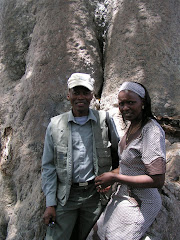Insufficient management oversight and poor communication led to devastating results in a classic case of child abuse in the UK, The Guardian Newspaper revealed on December 2, 2008.Such cases are increasingly becoming common in the world today and children suffer grossly as a result.
The report indicated that the damning outcome on the way Haringey Council protects abused and vulnerable children landed on Ed Balls' desk on 01 December 2008. The Ofsted Chief Inspector, Christine Gilbert, revealed to the secretary of state for children some significant weaknesses in the north London borough's methods of protecting children from abuse. She concluded that management was inadequate in executing its mandate fully to safeguard the well-being of children.
The review was described as devastating; reflecting bad management and poor communication on the part of the officials charged with the responsibility of protecting children from abuse.
Following a classic case of child abuse and neglect, five years ago, the UK national child protection policy was overhauled in the wake of the death of an eight-year-old Victoria Climbié from Ivory Coast while she was in Haringey's care. The borough's leadership was found to have ignored key recommendations following her death and was confronted with a list of systemic mistakes, oversights and examples of inadequate management.
Ofsted's report, produced with the Healthcare Commission and HM Inspectorate of Constabulary, found Haringey Council to have the worst child protection systems of any borough scrutinized by a review in the last 12 months. "This was not an investigation into the tragic death of 'Baby P', but it has shown that the serious concerns raised by his case, and the death of Victoria Climbié, remain," said Gilbert. "Haringey Council is clearly still not doing enough to ensure that children are properly protected."
In the review which took 13 days to complete, the Inspectors observed working life in a social care duty room, reviewed case files, including those of Baby P, held interviews, spoke to children and community representatives and considered performance data and the borough's policy on child protection. The findings were reflected as follows:
Bureaucratic Issues
1. The list of errors and malpractice discovered within the council and across local health agencies and the police begins with the way officials handle the first sign that a child might be in danger.
2. The borough's handling of referrals, which might come from a police officer or teacher, is "generally poor". Information about cases is not gathered properly and the person who makes the referral is often not told what action has been taken within 48 hours, a recommendation after the Climbié case to make different agencies to talk to each other about cases.
3. Even when case files are opened, they are not adequate. Entries are sometimes inaccurate and the distributions to partner agencies of minutes of important meetings where child protection measures are decided are frequently subject to unnecessary delays.
4. The result is that vital action which could safeguard an abused and vulnerable child may not be taken. Child protection plans are "generally poor". Social workers have no idea of who is doing what when they are drawn up.
Communication Channels
There is insufficient guidance for those who carry out most assessments on abused and vulnerable children. The review further found that some accident and emergency staff at the North Middlesex and Whittington hospitals, both locations where Baby P was treated, don't know how to check if a child is on the child protection register.
Different agencies involved in child protection do not share information properly. For instance, police reports of children being caught up in incidents of domestic violence often arrive with social workers late.
There is a concern that children are rarely interviewed by social workers about what is happening to them. If they are interviewed, it is unclear from records whether they are on their own and therefore able to tell the truth about abuse they are suffering, or with their abusers.
Management Issues
There was serious criticism of the management of child protection in Haringey. The Director of Children’s Services, Sharon Shoesmith, who was removed" from her post at Balls' insistence, was accused of insufficient management oversight over the assistant director of children's services. There was also insufficient supervision of front-line social workers by senior management.
The review concluded that there was little evidence that the local safeguarding children board made life any safer for young people in the area. It failed to challenge the work of its members and frontline staff. A total of 51 out of the 121 established social worker posts are filled by agency staff which results in a lack of continuity for children and their families.
Unfortunately, for those demanding answers about what happened to Baby P, the review did not address his case more precisely. Ofsted said the case review into his death was inadequate and Balls ordered a fresh review to be published by the end of March 2009. He resisted calls from the Conservatives and the Liberal Democrats to publish the full text of the existing review which, according to those who have read it, is "a litany of disaster".
"This two week investigation leaves a swath of questions unanswered," said Lynne Featherstone, Liberal Democrat MP for Hornsey and Wood Green. "I have never read anything as damning and devastatingly critical as this report is, but it looks at practice and management rather than the actual issues around Baby P and that is frustrating.
"There can be no halfway house when it comes to protecting our local children. Either Haringey council children's service is up the job or not and the report clearly shows not. It should be taken into full special measures now rather than after more reports."
Here are some of the major findings:
• Failure to identify children at immediate risk and act on evidence
• Social workers, health professionals and police did not communicate well
• Poor gathering, recording and sharing of information
• Inconsistent frontline practice and supervision by senior management
• Insufficient management oversight of the assistant director of children's services by the director of children's services and chief executive
• Over-dependence on performance data which was not always accurate
• Poor child protection plans
• Failure to ensure all requirements of the inquiry into Victoria Climbié's murder in 2000 were met
• Failure to speak directly to children at risk
• Inadequate serious case review into Baby P's death
• High turnover of social workers resulted in heavy reliance on agency staff
• Heavy workloads for social workers, with true number of children allocated to
them not always accurately counted.
Who suffers at the end of the day in such cases? Is it possible to curb some of the shortcomings that are highlighted above to ensure maximum protection of children?
guardian.co.uk © Guardian News and Media Limited 2008
Subscribe to:
Post Comments (Atom)











No comments:
Post a Comment